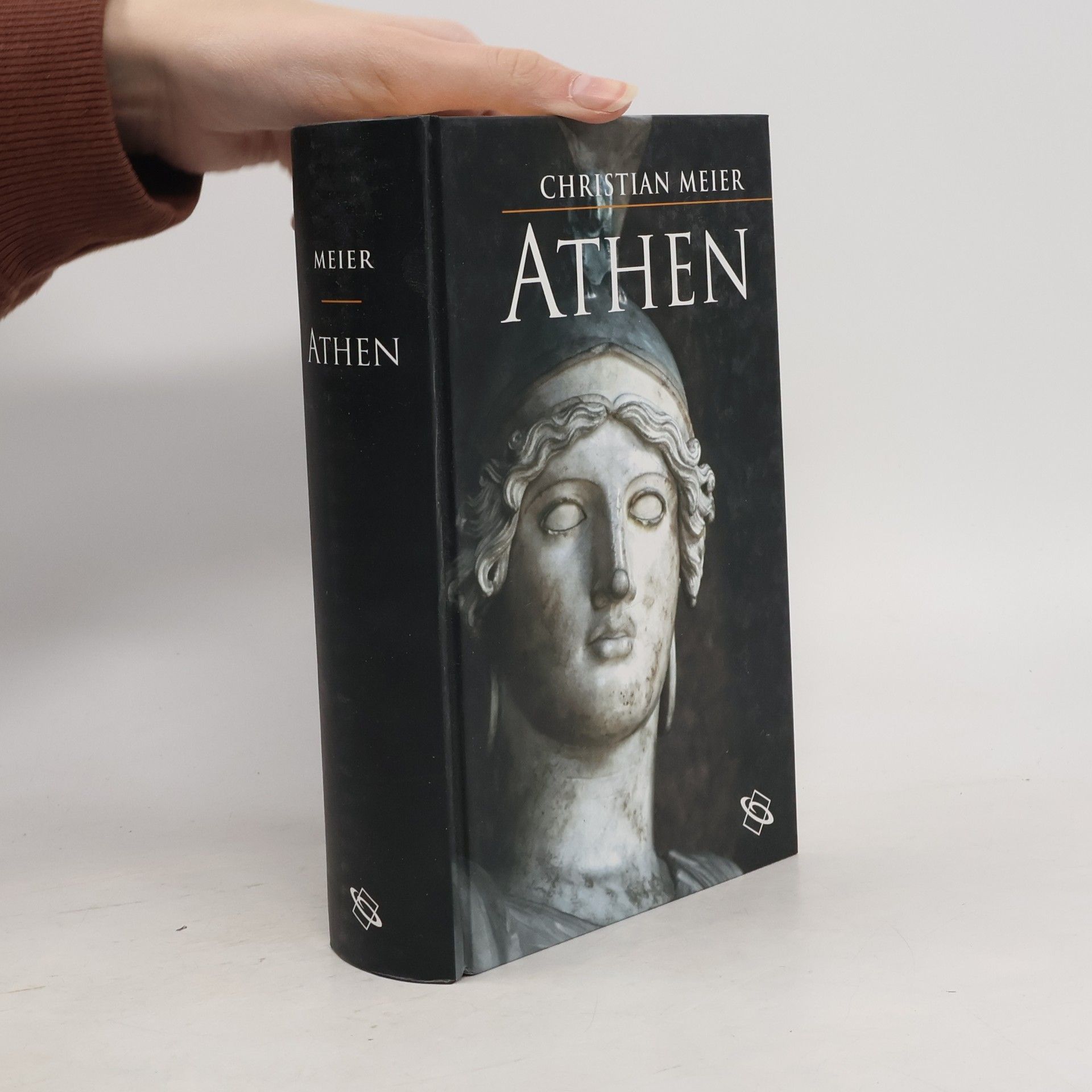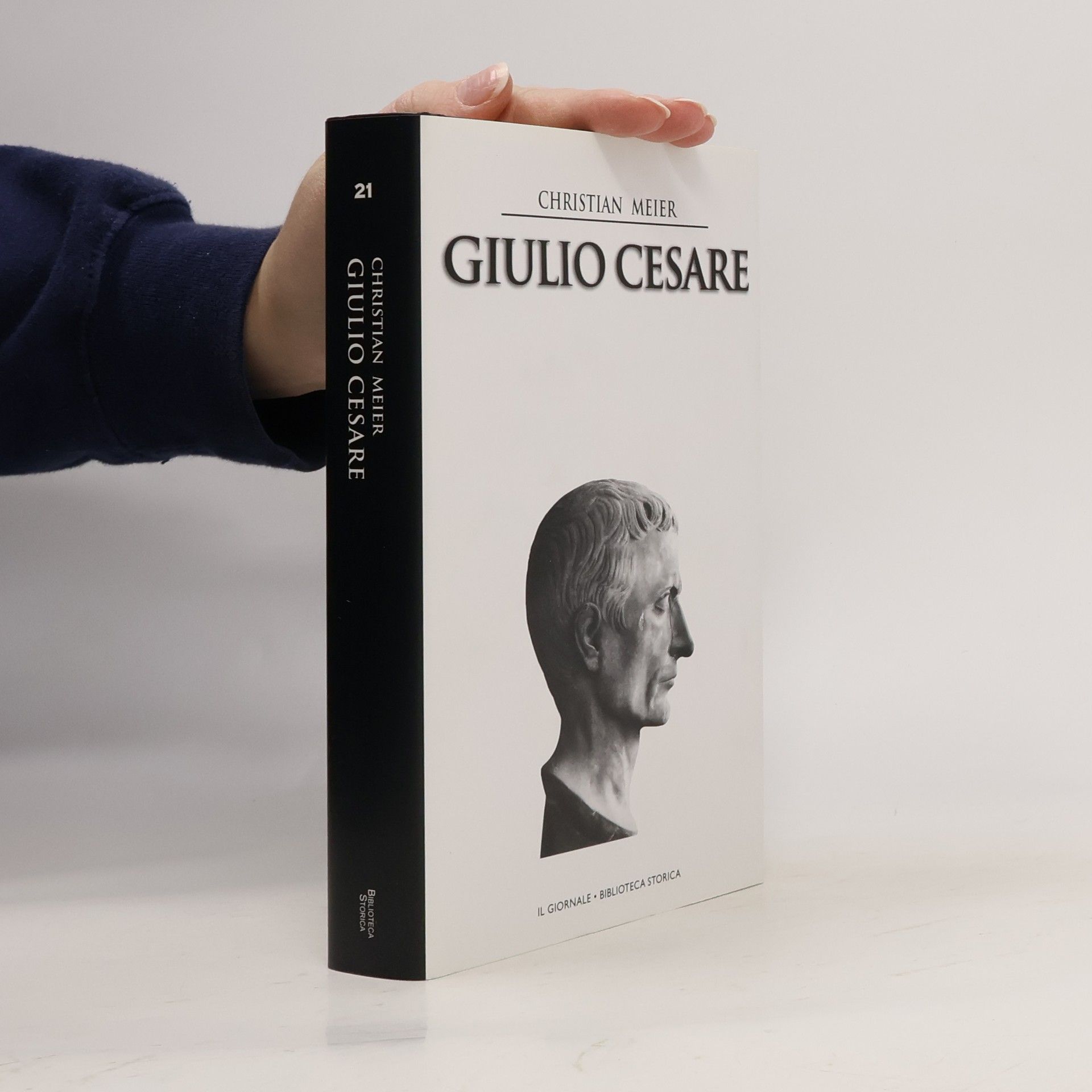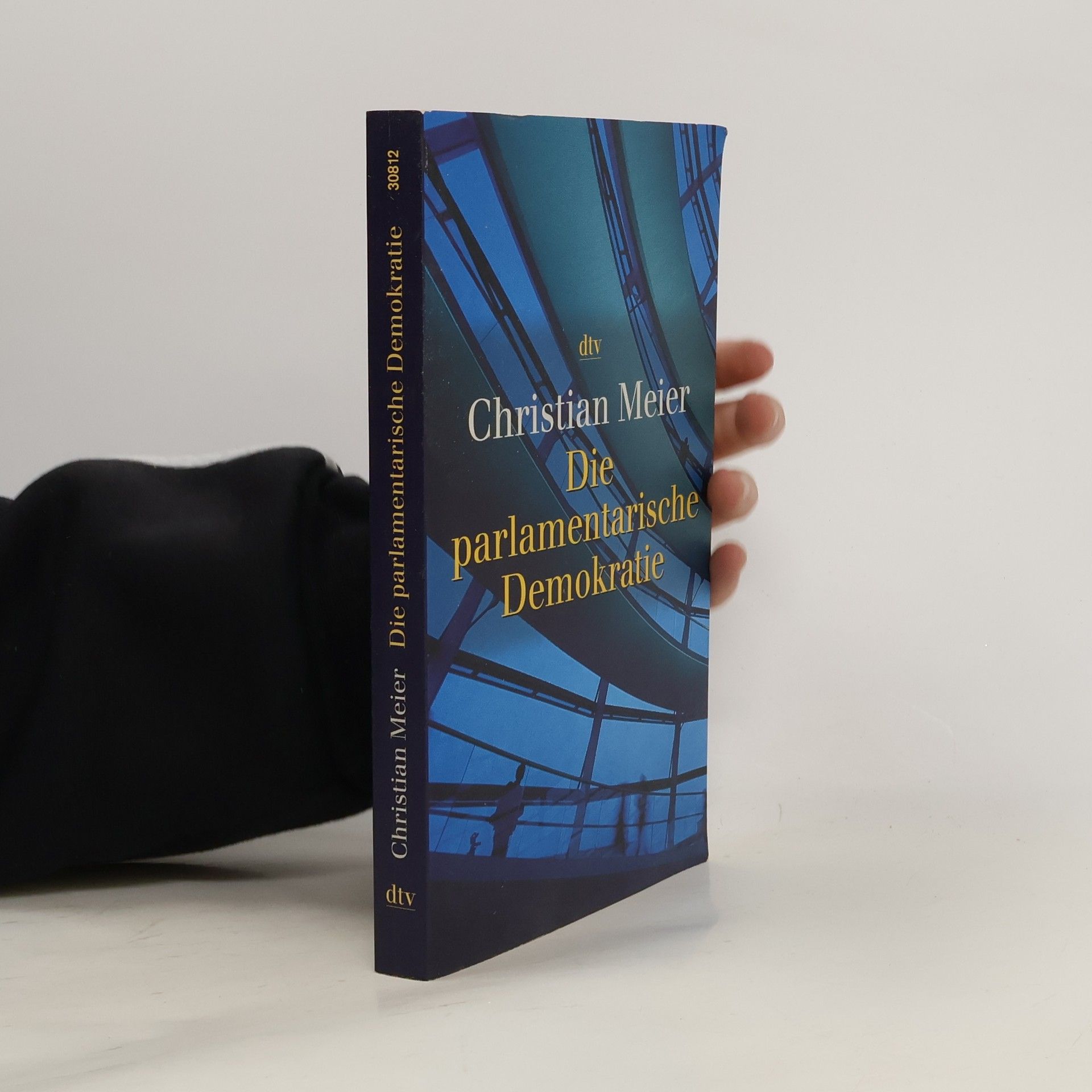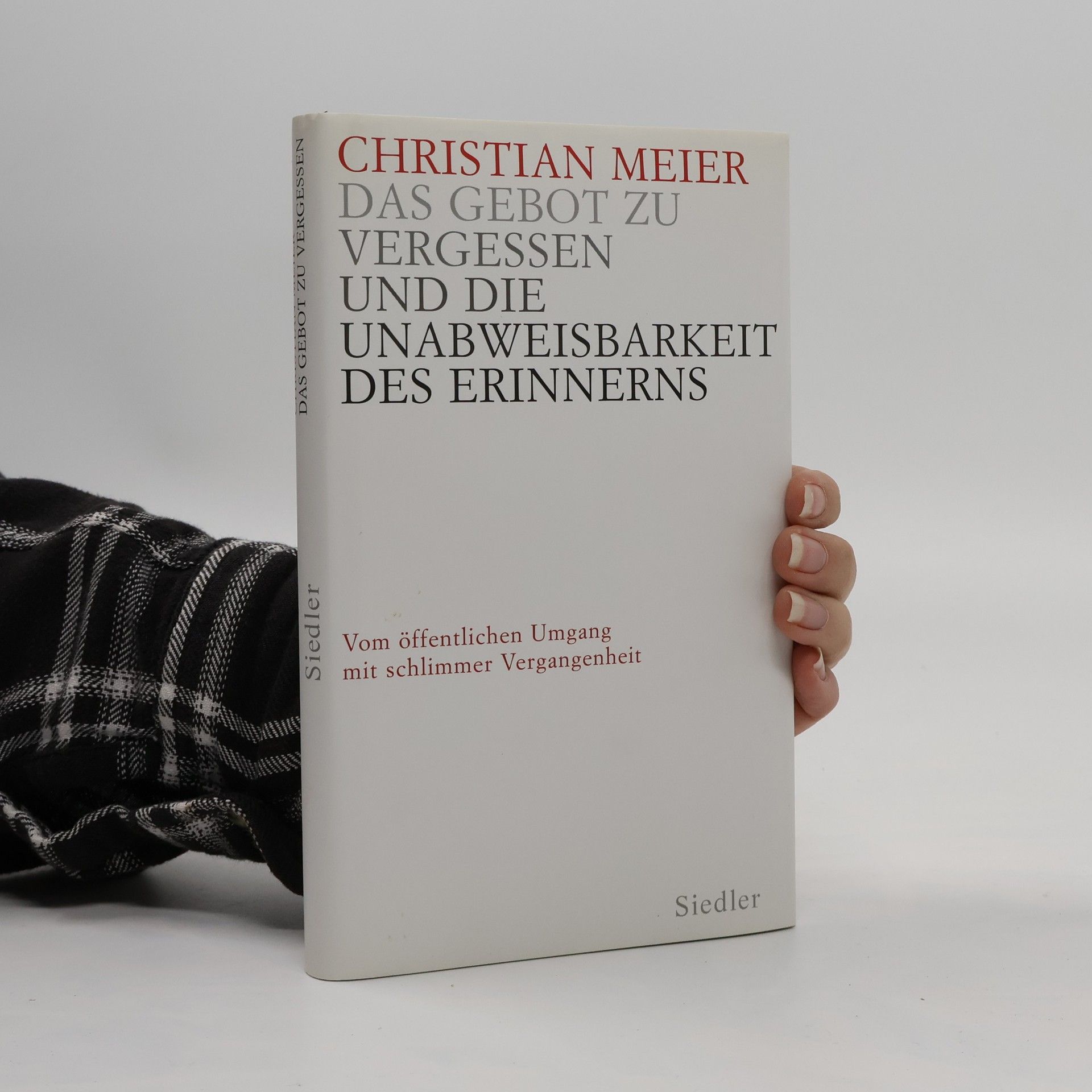Christian Meier Libri






As politician and diplomat, writer and lover, but above all as a military genius, Julius Caesar is one of the perennially fascinating figures in history—Boswell called him ”the greatest man of any age.” Christian Meier's authoritative and accessible biography is the definitive modern account of Caesar's life and career, setting Caesar's life story against the rich political and social background of the Late Roman Republic.
Die politische Kunst der griechischen Tragödie
- 244pagine
- 9 ore di lettura
Res publica amissa
- 332pagine
- 12 ore di lettura
German
Athen bricht im Jahr 480 v. Chr. nach dem Seesieg bei Salamis über die Perser in die Weltpolitik auf. Der Althistoriker Christian Meier hebt die immense Bedeutung der Schlacht hervor, die für Athen, Griechenland und Europa entscheidend war. Salamis stellte ein Nadelöhr dar, durch das die Weltgeschichte zeigen musste, dass nicht monarchisch regierte Reiche wie das der Perser, sondern die zersplitterten griechischen Stadtstaaten ohne zentrale Macht, mit wachsendem Mitspracherecht der Bürger, entscheidend waren. John Stuart Mill argumentierte, dass Salamis für die englische Geschichte bedeutender sei als die Schlacht bei Hastings, da es den griechischen Sonderweg bestätigte – einen Weg, der zeigte, dass Kultur, Macht und Einfluss nicht nur aus monarchischen Zentren hervorgehen, sondern auch in Bürgerherrschaften kleiner Gemeinwesen erblühen können. Meiers Buch, mit dem prägnanten Titel "Athen", ist ein Opus magnum, das sich auf das 5. Jahrhundert v. Chr. konzentriert, das "Jahrhundert Athens". Es beschreibt die großen Kriege, die politischen und kulturellen Blüten sowie den Niedergang Athens. Diese Epoche war geprägt von bedeutenden Staatslenkern, Dichtern und Geschichtsschreibern und endete mit dem Aufstieg der Mazedonier.
Kultur, um der Freiheit willen
Griechische Anfänge - Anfang Europas?
Die Geburt Europas aus dem Geist der Griechen Wo und wann nahm Europa seinen Anfang? Vielleicht doch schon bei den Griechen? Aber wer waren die eigentlich? Und woher hatten sie, was sie dann auszeichnete? Der alte Orient hat sie stark beeinflußt, aber was sie hervorbrachten, war völlig anders, völlig neu: Ein einziges Mal in der Weltgeschichte wurde eine Kultur nicht um der Herrschaft willen gebildet, sondern von breiteren Kreisen her, die sich herausgefordert sahen, ihre Freiheit gegen alle davon ausgehenden Zumutungen zu befestigen und zu entfalten. Ausstattung: mit Abbildungen
Die parlamentarische Demokratie
- 272pagine
- 10 ore di lettura
Zu Beginn des neuen Jahrhunderts blicken wir auf ein Stück deutsche Geschichte zurück, in der die Demokratie nicht zuletzt mit der Wiedervereinigung bedeutende Zeichen gesetzt hat. In ihrer Beständigkeit ist unsere Staatsform jedoch auch der Gefahr ausgesetzt, als selbstverständlich angesehen zu werden. Einige Bürger empfinden sie als »unbefriedigend« und »ausgehöhlt«. Dabei verlangen die Vielschichtigkeit und die Komplexität der Probleme, mit denen sich eine Gesellschaft wie die unsere auseinandersetzen muß, ein leistungsfähiges und fachkundiges Parlament, dessen Arbeitsweise weit komplizierter ist, als die Fernsehbilder der großen Debatten suggerieren. Christian Meier beleuchtet auf anschauliche und informative Weise die Entstehung und Arbeitsweise der parlamentarischen Demokratie sowie die Bedingungen ihres Funktionierens. Seine Darstellung verbindet profundes Wissen mit einer persönlichen Beurteilung unserer heutigen Demokratie. Er versteht es, den Leser durch eine erzählerische Sprache für sich einzunehmen.
Die Entstehung des Politischen bei den Griechen
- 514pagine
- 18 ore di lettura
Die in diesem Band vereinigten Studien sind durch zwei Fragen geleitet: Wie kam es zur Demokratie bei den Griechen? Und: Wodurch ist das Politische bei den Griechen ausgezeichnet? Bei der Beantwortung dieser Fragen geht es Christian Meier insbesondere um die Entwicklung geeigneter Kategorien, die es ermöglichen, die Eigenart der Griechen schärfer zu erfassen und damit zugleich für die Erkenntnis der Gegenwart wieder fruchtbar zu machen.
Das Gebot zu vergessen und die Unabweisbarkeit des Erinnerns
- 158pagine
- 6 ore di lettura
Vom Nutzen und Nachteil des VergessensEin zentraler Glaubenssatz unserer Zeit lautet: Um eine Vergangenheit zu »bewältigen«, muß man die Erinnerung an sie ständig wachhalten. Christian Meier, einer der bedeutendsten deutschen Historiker, stellt diese Geschichtsversessenheit in seinem brillanten Essay in Frage. Er weist nach, daß in früheren Zeiten nicht Erinnern, sondern Vergessen das Heilmittel war, mit einer schlimmen Vergangenheit fertigzuwerden. Christian Meier ist die Weltgeschichte durchgegangen, um herauszufinden, was die Menschen früher taten, wenn sie nach Kriegen oder Bürgerkriegen Versöhnung suchten. Sein Befund ist ebenso erstaunlich wie einfach: Die Welt setzte seit den alten Griechen auf Vergessen. Die deutschen Verbrechen der NS-Zeit aber konnten nicht vergessen werden. Die öffentliche Erinnerung an sie war und ist unabweisbar. Und bei allem Ungenügen: Die Auseinandersetzung damit hat sich gelohnt. Gilt also seitdem eine neue Regel? Wie ist etwa mit der Erinnerung an das Unrecht später gestürzter Diktaturen, zumal des SEDRegimes, umzugehen? Wäre vielleicht auch heute Vergessen eher angebracht als Erinnerung?
Nano
Wie winzige Technik unser Leben verändert



